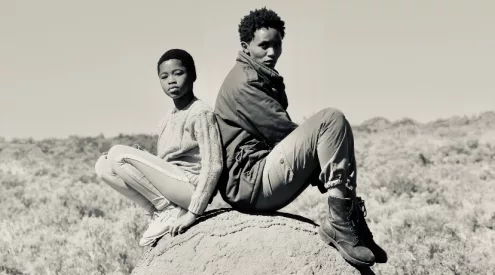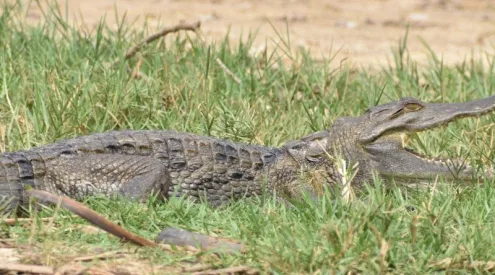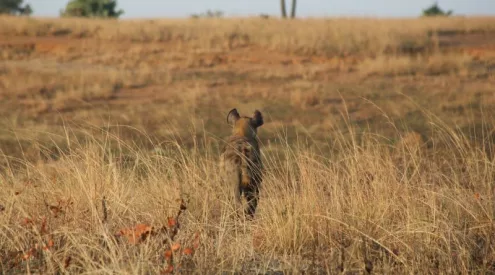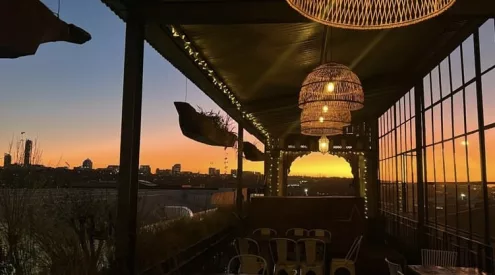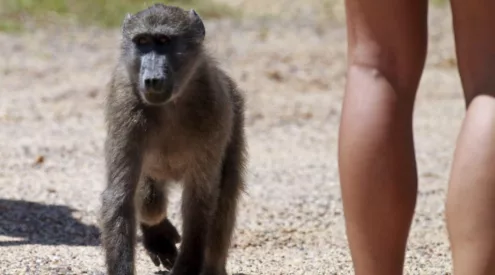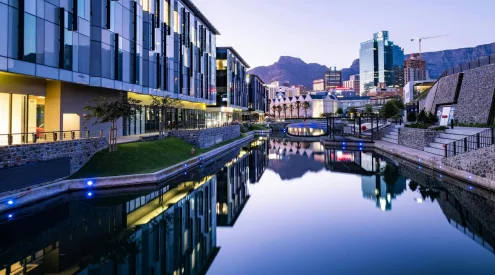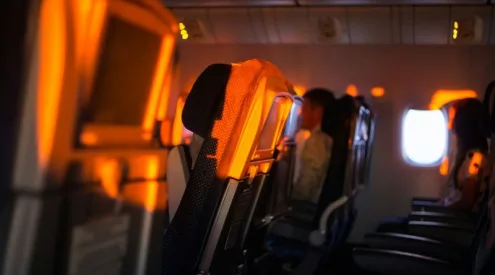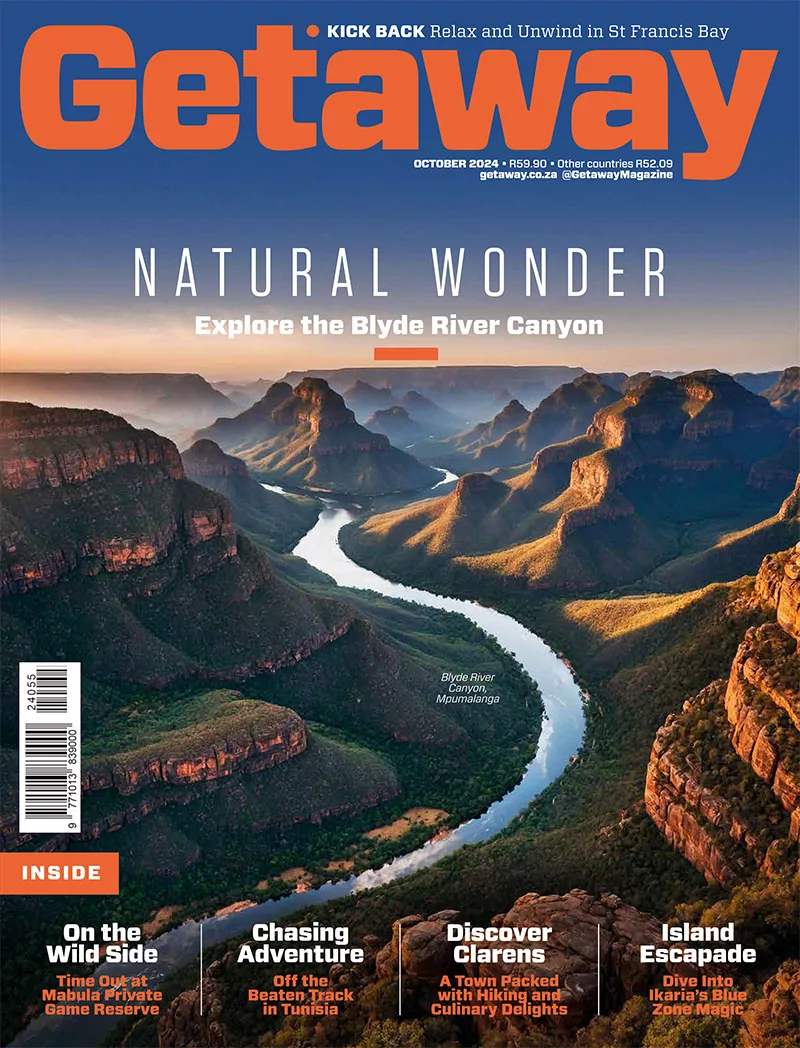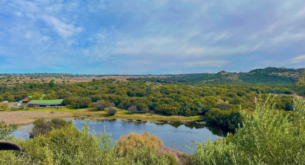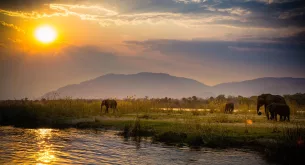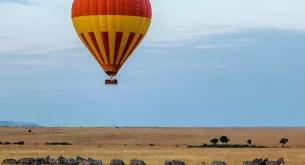Settled into my favourite spot on the couch in the winter sun, Danelle and Brendan Murray carried me off to the world of Lazzy the Otter. And he’s no usual otter either. For a creature whose swimming abilities are described as ‘excellent’ and ‘strong’ by various wildlife websites, this little otter would have none of it. An otter afraid of water. Imagine.
And so, in September 2019, the couple was asked to rewild, release and post-release monitor a very tame five-year-old Cape clawless otter called Lazarus, who had been rescued as a cub but remained in captivity until the Murrays’ intervention.
Their book tells the story of their challenges, adventures, and triumphs as Lazzy explores his new environment on his journey to become a wild otter. ‘Part of the process needed for Lazarus’s adaptation was to get him comfortable in his habitat by taking him for daily swims,’ Danelle explains.
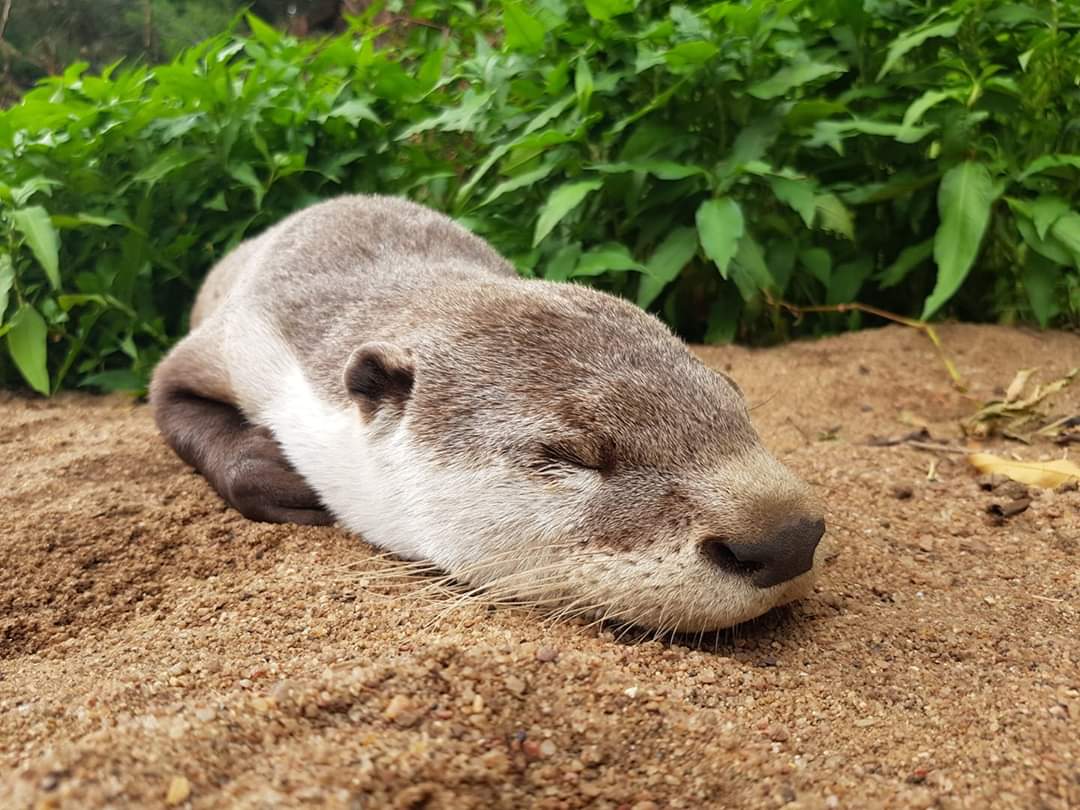
In a charmingly conversational way, Danelle and Brandan describe their journey with the otter and how he changed their lives as much as they changed his. Page after page I felt at the same time more attached to Lazzy and also wishing to see him be completely wild. This was one of those ‘just one more page then I’ll go to sleep’ kind of books. Hence my sleep-deprived look these days.
Not only did I learn a lot about otters, but I also got a good look into the hearts of two very dedicated humans. Brendan and Danelle are both members of the IUCN (International Union of Conservation of Nature) SSC (Species Survival Commission) Otter Specialist Group. I can think of no one better to entrust this challenge to.
They are also the founders of Owl Rescue Centre, a Non-Profit Organisation concerned with the protection of owls and other wildlife species.
To take it a step further, the book also taught me a lot about life in general, too.
‘Lazzy’s story in many ways is a perfect analogy of overcoming challenges in our own lives – to have courage, persistence, confidence, and determination in what we wish to achieve. He reminded us, through his remarkable transformation, that it is never too late to be the person that we want to be and to live the life we were meant to have,’ Danelle says.

Here’s a short extract from the book:
That first morning, Lazarus gnawed greedily at the fish, gripping it tightly between his fingers, chewing on the left side of his mouth and then on the right, his large canine teeth exposed like a ravenous monster. It was his human-like fingers that captured my attention most during our first meetings. He would close his eyes at times with pure enjoyment, crunching through the bone and skin. He ate with the same enthusiasm until the very last bit was gone.
In that moment I realised what humankind had deprived him of. His freedom was never ours to take or to give. Those who had been responsible for seeing him return to the wild before this had failed him. They failed him miserably and made a prisoner out of an innocent being.
Lazzy was running and splashing through the shallow water near the sandbank when he noticed Brendan a few metres away, swimming in the deeper part of the river to cool off from the scorching sun. The inquisitive otter perked up with excitement, stood up on his hind legs to get a better view, and then bravely swam over to him. This was his first time entering water that required swimming, which was vastly different to the shallow waters he was used to and which he could easily walk through. Lazzy completely underestimated the current of the river. He unexpectedly found himself in deep water and had to rely on his undeveloped swimming skills to get him across to where Brendan was.
The fast-flowing water overwhelmed the otter as it swept him further and further down the river and away from Brendan.
Our intention of freeing him to live in the wild, to fend for himself, was still a terrifying thought. This decision to help re-wild an otter came with daily reflection on the best possible outcome for Lazarus, which in moments of occasional doubt caused both Brendan and I a fair deal of anxiety.
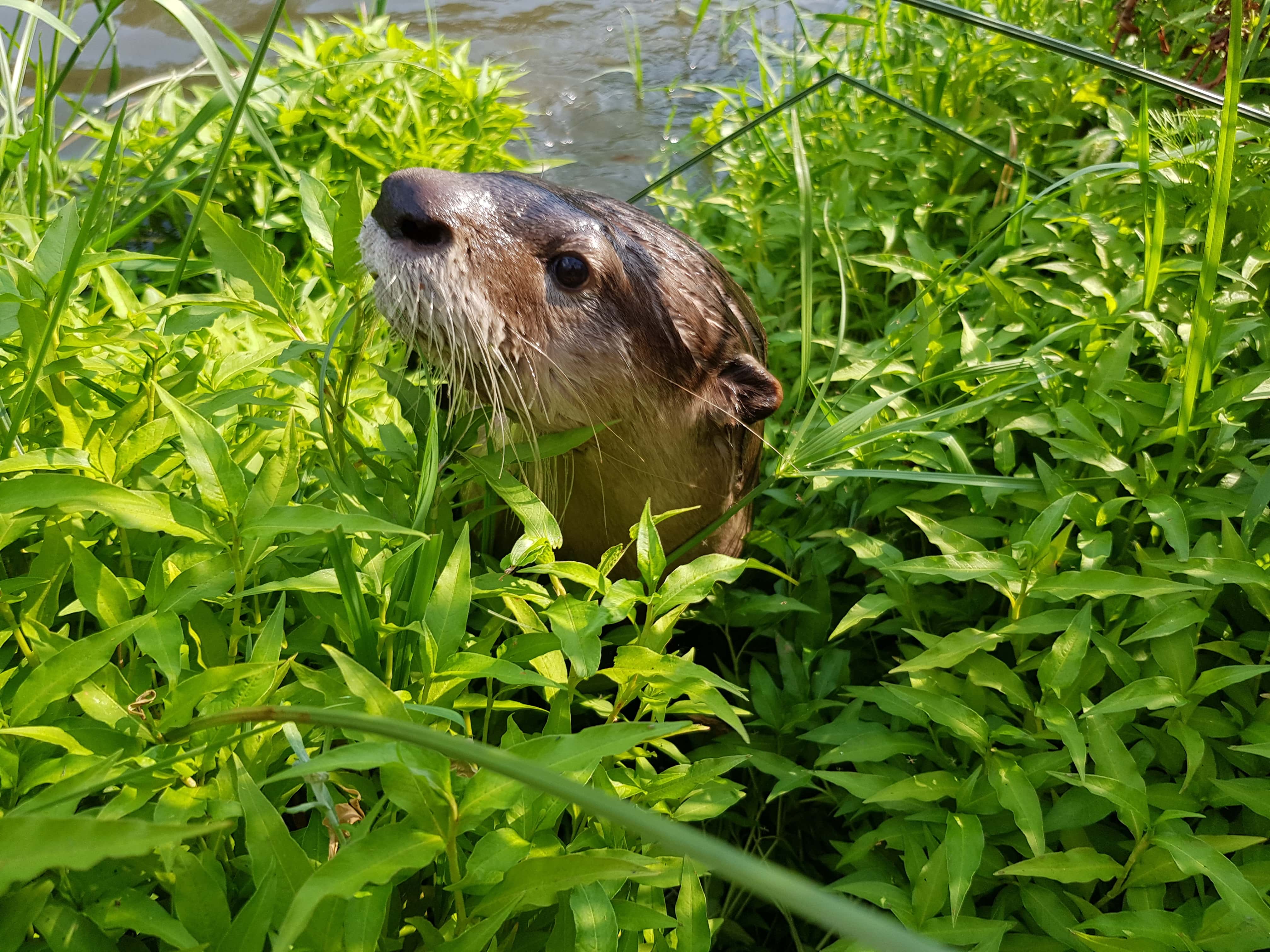
There were no short cuts in the process of helping Lazzy return to the wild. We had to be sure that we were doing what was right for him and that he would be equipped, when we were no longer around to supervise him and to support feed him, to survive without us. To fully understand what his life as a free-living otter in the wild would be like, we had to be willing to become a part of that natural world. We had to, in a way, surrender ourselves to this environment and fully immerse ourselves in it.
That moment, when we had decided to allow Lazzy to go free, was one of the best moments of my life. When we opened the gate to his cage forevermore and allowed him his own free will, my heart swelled and every limb in my body had a feeling of lightness in it, as if I was floating through clouds of merriment. It was as if a small part of the universe had been set right.
The rains came later than usual that spring. It had been a hot and dry season, but when the clouds finally decided to burst open, the sky turned fiercely dark, and the rain came bucketing down. I woke to the sound of a ferocious crack of lightning followed by the rumbling of thunder. I sat up in bed, my heart fluttering in my chest. My thoughts went straight to Lazarus. This would be the first thunderstorm that he would experience on his own out in the wild.
Like the river, the environment around us constantly moves and changes. Lazarus had changed, too, and was no longer the same otter we met those many months ago. Mother Nature had welcomed him home, like she does with all of her own, and taught him the ways of the wild.

Today, Lazarus lives free in a natural habitat along the Crocodile River in the North West Province of South Africa. They still observe, check and monitor his progress and gain useful data through this.
To get a hold of Return to the Wild, visit their website here.
Pictures: Supplied/Anita Froneman

